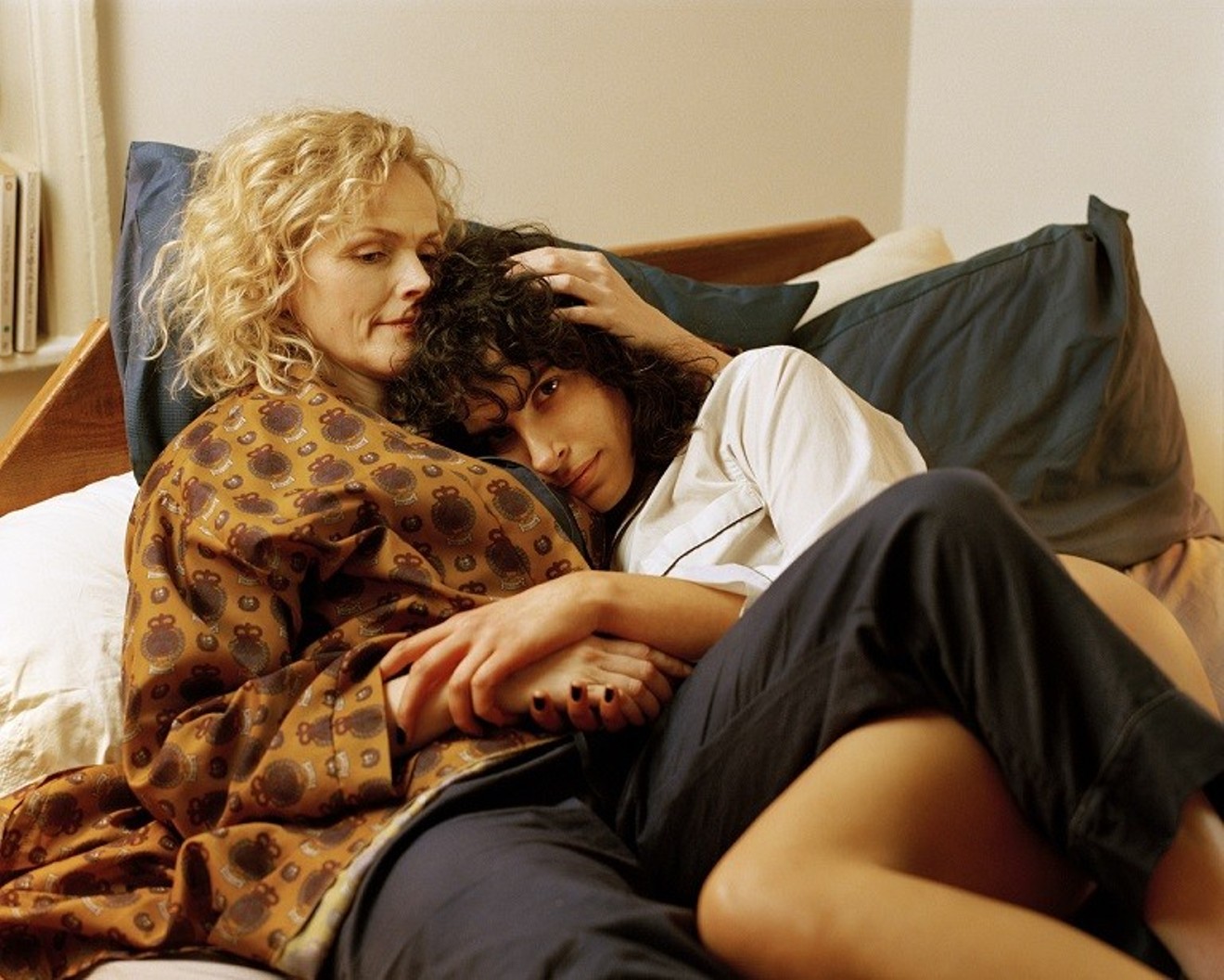The Bisexual premiered November 16 on Hulu .
A queer woman acquaintance on Twitter once called The L Word, the most well-known TV series by and about queer women, "the worst show ever made." And not one of her thousands of followers — on a platform known for the argumentative nature of its denizens — disagreed with her. When The L Word first aired, every queer woman I knew was watching. What choice did we have? We couldn't just switch to some better show by and about queer women because none existed. Those days are now behind us: Queer women writing queer women characters for TV are no longer unusual, though shows that rate beyond "not terrible if you skip all the scenes that have straight people in them" remain rare. I hadn't encountered excellent TV by and about queer women until I saw Desiree Akhavan's Channel 4 series The Bisexual, which arrives on Nov. 16.
Akhavan's name may be familiar because The Miseducation of Cameron Post, the film about anti-queer conversion therapy she directed and cowrote, won the Grand Jury Prize at Sundance in January, had a limited run this summer and is one of the best films of 2018. Akhavan created and cowrote The Bisexual (with her Miseducation cowriter Cecilia Frugiuele) and stars (she also directed four out of its six episodes) in this comedy about an American immigrant in London. Akhavan plays Leila, who leaves a 10-year relationship with another woman (also her business partner) to have sex with men and women. Inevitably, Akhavan has been compared to Lena Dunham, who even gave Akhavan a recurring role on Girls. But Akhavan is a more skilled performer, one who makes her flawed, sometimes callous character (Leila puts gum in a romantic rival's hair) someone the audience can root for. With her huge smile, Leila brings a sense of fun and clumsy adventure to her erotic encounters. "Go ahead, stick it in my mouth," she says, slapping the thighs of the first man she hooks up with.
Akhavan has stuffed the cast with scene-stealers. The delightful Maxine Peake (who stars in Mike Leigh's upcoming Peterloo and played Hamlet in a recent UK film version) is Leila's ex, Sadie. Knockout model-actress Cassie Clare, as Leila's coworker Hye Me, wears some of the best fashion on TV since Killing Eve's Villanelle. Brian Gleeson plays Gabe, Leila's depressed, straight-guy, novelist/professor roommate. Newcomer Saskia Chana is Leila's sardonic, queer best friend, Deniz, whose door-buzzer, East-London accent interrupts Leila's lies. Leila asserts, falsely, that she and Sadie are not really broken up, but on a mutually agreed on "break,” and Deniz, who doesn't yet know Leila is bisexual, sighs, "Only a lesbian would say that."
The Bisexual has elements of farce: Leila, for a while, seems to have sex with everyone she shares a drink with. But like gay comedian Josh Thomas' autobiographical series, Please Like Me (which featured and was, in part, written by Hannah Gadsby) from a couple of years back, its laughs don't keep it from reaching unexpected levels of emotional verisimilitude. In the course of its six episodes, we see how a bad hookup after a breakup can make you want to run back to your ex, how an offhand remark from another hookup can hurt and how you can then hurt that person you don't know well right back. We see that some of the characters have complicated reasons for not being in romantic relationships, rather than being portrayed as TV comedies’ usual sad-sack singles. The Bisexual's depth exposes how lazily and badly written most TV still is.
Part of what sets the show apart is that instead of just being in a sea of straight people, Leila is embedded in the queer community: It's her home culture. The only other current LGBT shows that do the same are Pose, which takes place in 1980s New York and centers on ball culture (like that captured in Jennie Livingston's documentary Paris Is Burning), and, to a lesser degree, Vida, which takes place in a present-day, gentrifying Latinx neighborhood in Los Angeles. And like those shows, The Bisexual doesn't follow the all-too-common tradition of queer TV and movies that focus only on white faces: Akhavan is Iranian-American; Chana is British-South Asian (though her character is the daughter of Turkish immigrants); and Clare is black. My one quibble with the show is its lack of other bisexuals (besides Gabe's unenthusiastic girlfriend) or trans and nonbinary people, all of whom, in real life in 2018, pop up even in circles that start out as exclusively lesbian.
The Bisexual's characters briefly mention and even watch old episodes of The L Word, but, like my friend's followers on Twitter, they’re under no illusion about its quality. Their shout-outs, though, are both a nice acknowledgment of history and a mark of how far we've come.
[
{
"name": "Air - MediumRectangle - Inline Content - Mobile Display Size",
"component": "18478561",
"insertPoint": "2",
"requiredCountToDisplay": "2"
},{
"name": "Editor Picks",
"component": "16759093",
"insertPoint": "4",
"requiredCountToDisplay": "1"
},{
"name": "Inline Links",
"component": "17980324",
"insertPoint": "8th",
"startingPoint": 8,
"requiredCountToDisplay": "7",
"maxInsertions": 25
},{
"name": "Air - MediumRectangle - Combo - Inline Content",
"component": "16759092",
"insertPoint": "8th",
"startingPoint": 8,
"requiredCountToDisplay": "7",
"maxInsertions": 25
},{
"name": "Inline Links",
"component": "17980324",
"insertPoint": "8th",
"startingPoint": 12,
"requiredCountToDisplay": "11",
"maxInsertions": 24
},{
"name": "Air - Leaderboard Tower - Combo - Inline Content",
"component": "16759094",
"insertPoint": "8th",
"startingPoint": 12,
"requiredCountToDisplay": "11",
"maxInsertions": 24
}
]











